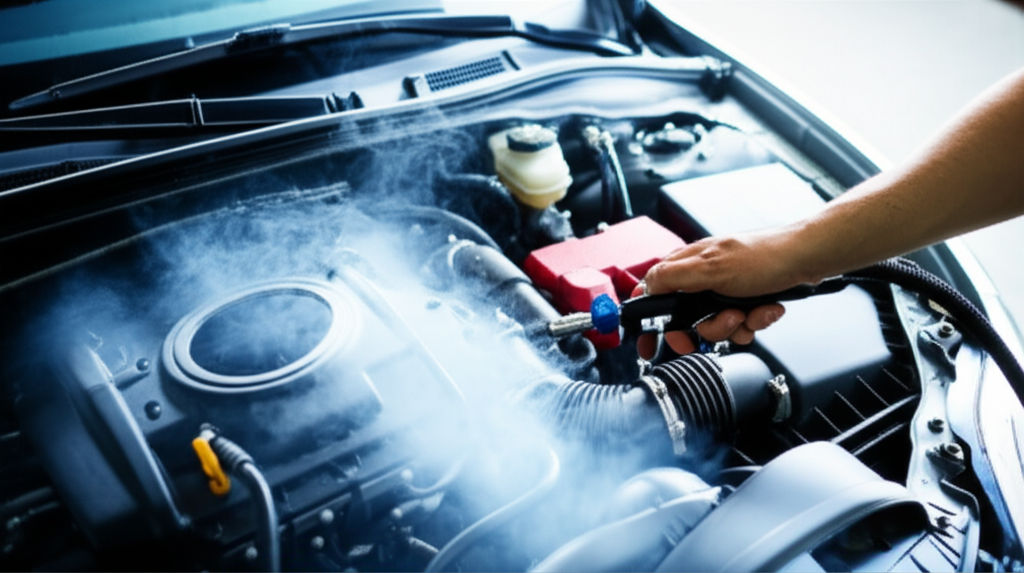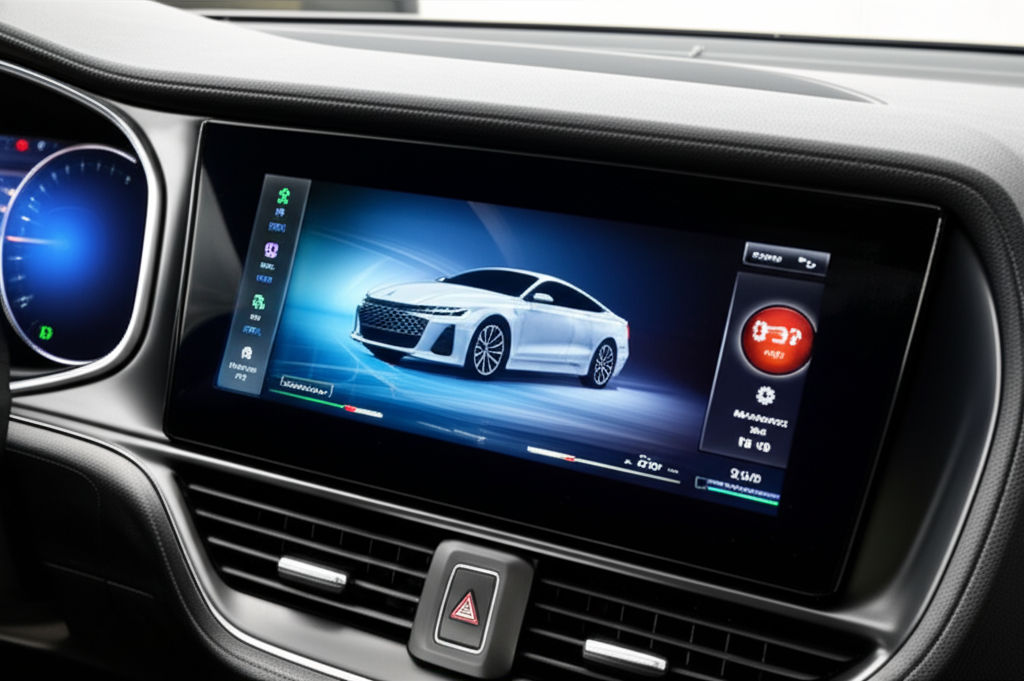Vehicle Recalls: What You Need to Know
Ellie Moore

Photo: Vehicle Recalls: What You Need to Know
Vehicle Recalls: What You Need to Know
When you buy a vehicle, whether it’s brand new or used, the excitement of owning a reliable mode of transportation often outweighs concerns about potential problems. However, one critical aspect that every car owner needs to be aware of is vehicle recalls. Vehicle recalls are more common than you might think, and staying informed is essential for your safety and the longevity of your car.
In this article, we'll dive deep into what vehicle recalls are, why they happen, how to check if your car is affected, and what to do if your vehicle is recalled. We’ll also explore common types of recalls, their impact, and how to protect yourself from potential safety issues. So, buckle up let's explore everything you need to know about vehicle recalls!
What is a Vehicle Recall?
A vehicle recall is an official notice issued by a car manufacturer or the National Highway Traffic Safety Administration (NHTSA) that alerts car owners to potential safety or mechanical issues with their vehicles. A recall occurs when a vehicle, or one of its components, is found to have a defect or does not comply with safety standards, posing a risk to the driver, passengers, or other road users.
Recalls can affect various parts of a car, including the engine, airbag system, brakes, fuel system, tires, and much more. When a recall is issued, manufacturers are required to fix the issue at no cost to the vehicle owner, which may include replacing defective parts or even replacing the entire vehicle if necessary.
Why Do Vehicle Recalls Happen?
Vehicle recalls are issued for a variety of reasons, but they primarily revolve around safety concerns. Here are some common causes for vehicle recalls:
- Defective Parts: Sometimes, components such as airbags, brakes, or engines may be improperly designed or manufactured, leading to performance issues or failures that could endanger the driver and passengers.
- Non-compliance with Safety Standards: Vehicles or certain parts may fail to meet federal safety regulations. This could range from issues with the crash safety design to non-compliant lighting systems.
- Manufacturing Errors: Errors during the production process, such as faulty assembly or substandard materials, can lead to serious issues down the line.
- Software and Electrical Failures: As cars become increasingly reliant on software and electronics, software glitches or electrical malfunctions can also trigger recalls. This is especially true for modern vehicles with advanced driver assistance systems (ADAS), where a software bug could disable a critical safety feature.
- Corrosion or Environmental Factors: In some cases, environmental conditions or vehicle wear and tear over time can cause parts of the vehicle to degrade, leading to recalls.
The Impact of Vehicle Recalls
While many recalls are minor and don’t pose an immediate safety risk, others can be extremely dangerous. Ignoring a recall can put you, your passengers, and other road users at risk. For instance, defective airbags have been known to deploy improperly or fail to deploy in a crash, which can be life-threatening.
Even if the issue seems minor, such as a malfunctioning stereo system, it’s always best to address the recall promptly to avoid future headaches.
Types of Vehicle Recalls
Vehicle recalls can be broadly categorized into two types: Safety Recalls and Non-safety Recalls.
- Safety Recalls: These are the most serious and usually involve defects that pose a risk to safety. Examples include issues with airbags, brakes, steering systems, or tires.
- Non-safety Recalls: These involve non-critical issues that don’t pose an immediate danger but still need to be fixed. For example, a recall might be issued for a malfunctioning infotainment system, faulty paint, or incorrect labeling on a vehicle.
How to Check If Your Vehicle is Part of a Recall
With millions of cars on the road, it’s important to regularly check if your vehicle is affected by any recalls. Fortunately, the process is relatively simple. Here’s how you can check:
- Visit the NHTSA Website: The National Highway Traffic Safety Administration (NHTSA) offers an easy-to-use tool for checking recalls. All you need is your vehicle’s 17-character Vehicle Identification Number (VIN). The VIN can be found on your car’s dashboard, near the windshield, or on the driver's side door frame.
- Manufacturer's Website: Many car manufacturers have dedicated recall pages on their websites where you can enter your VIN to check for recalls.
- Dealerships: If you prefer, you can always contact your car dealership. They can run a recall check for you and even arrange the necessary repairs if your car is affected.
Signs Your Vehicle Might Be Recalled
While you should always check official recall databases, you can also keep an eye out for these signs that your vehicle might be part of a recall:
- Airbag Light: A malfunctioning airbag system might trigger the airbag warning light.
- Unusual Noises: If your car starts making strange noises that weren't present before, it could be a sign of a problem that has triggered a recall.
- Performance Issues: If your car’s performance drops, such as inconsistent braking or poor acceleration, it could be due to a defect in one of the key systems.
What to Do If Your Car Is Recalled
If you find that your vehicle is affected by a recall, don’t panic! Manufacturers are legally obligated to fix the issue, and it’s typically free of charge. Here’s what you should do:
1. Read the Recall Notice
Once a recall is issued for your car, the manufacturer will send you a notice. This notice will detail the problem, the affected vehicles, and the steps the manufacturer will take to address the issue.
2. Contact the Manufacturer or Dealer
Get in touch with your vehicle’s manufacturer or local dealership as soon as possible. They will provide details about the recall repair process, and many dealerships will prioritize repairs for recalled vehicles.
3. Schedule the Repair
Recall repairs are usually free of charge, but you may need to schedule an appointment for the work to be done. Depending on the nature of the recall, the repair might take anywhere from a few hours to a few days.
4. Stay Informed
Keep an eye on your mail and email for any updates regarding the recall. Sometimes, additional parts or fixes are required after the initial repair.
5. Know Your Rights
If you feel that the recall was not handled properly, or you encounter issues with the repair process, know that you have rights under federal law. The manufacturer is responsible for providing you with a safe, repaired vehicle, and if the issue persists, you can seek assistance through NHTSA or other consumer protection agencies.
Common Myths About Vehicle Recalls
There are several misconceptions about vehicle recalls that can prevent car owners from taking the necessary steps to ensure their safety. Let’s debunk some of them:
Myth 1: "I don’t need to worry about recalls on older vehicles."
Even older vehicles are subject to recalls, and sometimes, the issues with older models are more critical. It’s always worth checking.
Myth 2: "If my car isn’t having issues, the recall doesn’t matter."
Just because you don’t notice any issues doesn’t mean your car is unaffected. Some defects are not always immediately apparent but can still pose a risk.
Myth 3: "Recalls are just a scam by manufacturers."
This is far from the truth. Recalls are issued because manufacturers take safety seriously and want to fix potential hazards before they lead to accidents or injuries.
Conclusion: Take Action Now
Vehicle recalls are an important part of ensuring the safety of your car and its passengers. By staying informed, checking your vehicle regularly for recalls, and taking immediate action when needed, you can significantly reduce the risks associated with vehicle defects. Remember, car manufacturers are legally obligated to fix issues at no cost to you, so there’s no reason to delay.
Make it a habit to check for recalls periodically, and always respond promptly to any recall notices you receive. Your safety and the safety of your loved ones depend on it!
FAQ Section
Q: How long do car manufacturers have to fix a recall?
A: Manufacturers typically must repair or replace the defective part within a reasonable time frame after the recall notice is issued. Some repairs may take longer depending on the severity and availability of parts.
Q: Are recalls always free?
A: Yes, under federal law, recall repairs are free of charge, even if the recall occurs after your warranty expires.
Q: Can I sell my car if it has an outstanding recall?
A: Yes, but it’s important to disclose any active recalls to potential buyers. Additionally, fixing the recall issue before selling can help increase the car’s resale value.
Q: How often do recalls occur?
A: Vehicle recalls happen regularly, affecting millions of cars each year. It’s a good idea to stay updated on any new recalls that might affect your vehicle.
Finance & Investment
View All
June 10, 2025
How to Finance a Car Without Getting TrappedUnlock higher rankings & engaged readers with expert SEO content. Learn to create authoritative, valuable content that satisfies user intent and boosts your E-E...
Ellie Moore

January 18, 2025
Habits of Highly Successful EntrepreneursDiscover the daily habits that build a powerful entrepreneurial mindset. Start transforming your habits now!
Ellie Moore

March 24, 2025
Emergency Funds: Your Financial Safety NetUnderstand why emergency funds are essential for personal finance. Learn how to build and maintain a strong financial safety net for peace of mind!
Ellie Moore

November 14, 2025
Complete Finance Application TipsElevate your SEO! Discover how to create expert content that ranks and resonates, focusing on value, authority, and Google's E-E-A-T framework.
Ellie Moore

January 24, 2025
Entrepreneurial Mindset for BeginnersLearn the basics of developing an entrepreneurial mindset. Start your journey to business success today!
Ellie Moore

February 23, 2025
Top Finance Jobs Hiring NowMaster "Expert SEO Content" to rank high & build trust. Learn to blend deep knowledge, E-E-A-T, and user intent for valuable, discoverable content.
Ellie Moore
Insurance
View AllEnhance your coverage with insurance riders. Learn about their types, benefits, and why they’re crucial for customizing policies.
Ellie Moore
Secure your business's future. Explore Premium Erie Insurance Coverage to mitigate risks, ensure financial stability, and optimize your risk management strategy...
Ellie Moore
Save on premiums with usage-based auto insurance. Learn how your driving habits shape coverage and costs!
Ellie Moore
Insure your valuables! Learn what’s covered, from antiques to art, and how to ensure proper protection for collectibles.
Ellie Moore
Secure optimal car insurance! Our guide helps policyholders & risk managers find top providers, maximize value, protect assets, and avoid overpaying.
Ellie Moore
Unlock growth & security with top-rated insurance agency services. Guide for agents, policyholders & risk managers to optimize operations & mitigate risks.
Ellie Moore
Education
View AllOutdoor learning promotes cognitive and social growth. Explore how nature-based education enhances learning outcomes and student well-being.
Read MoreHelp students master metacognition! Learn how teaching students to think about their thinking can improve problem-solving and critical thinking skills.
Read MoreDiscover how assistive technology empowers special needs learners. Learn about tools that foster inclusivity and enhance educational outcomes.
Read MoreOpen educational resources are breaking down barriers to knowledge. Learn how free learning materials are changing the global education scene.
Read MoreExplore the ongoing debate on standardized testing. Learn its pros, cons, and whether it should remain a key part of education.
Read MoreIs self-directed learning the future? Learn how students can take control of their own education, boost motivation, and achieve better results.
Read MorePopular Post 🔥
View All
1
2
3
4
5
6
7
8
9
10
Health






Automotive
View All
September 6, 2025
Beach Blvd Automotive Jax Full Review
Seeking trusted auto repair in Jacksonville, FL? Our review explores Beach Blvd Automotive Jax, known for expertise, reliability, and your vehicle's peace of mi...

July 22, 2025
All Things Automotive To Keep Your Car Running
Maximize your car's life & save money! Learn essential maintenance tips for optimal performance, safety, and longevity. Keep your vehicle running smoothly.

July 14, 2025
How Automotive Smoke Machines Help Diagnose Cars
Demystify car issues! Automotive smoke machines reveal invisible leaks causing Check Engine lights, rough idle, & poor fuel economy. Save time & money.

July 21, 2025
Williams Automotive Care And Service Insights
Ensure a healthier, safer, and longer-lasting vehicle. Learn proactive car care insights from Williams Automotive to prevent costly repairs.

September 11, 2025
Jay's Automotive Gets The Job Done Right
Jay's Automotive: Experience reliable, expert car repair. We get the job done right every time, ensuring your vehicle's safety & your peace of mind.

August 10, 2025
Monster Monster Automotive Smart Screen Explained
Revolutionize your drive with advanced automotive smart screens! Enhance navigation, entertainment, & safety via seamless smartphone integration.

















